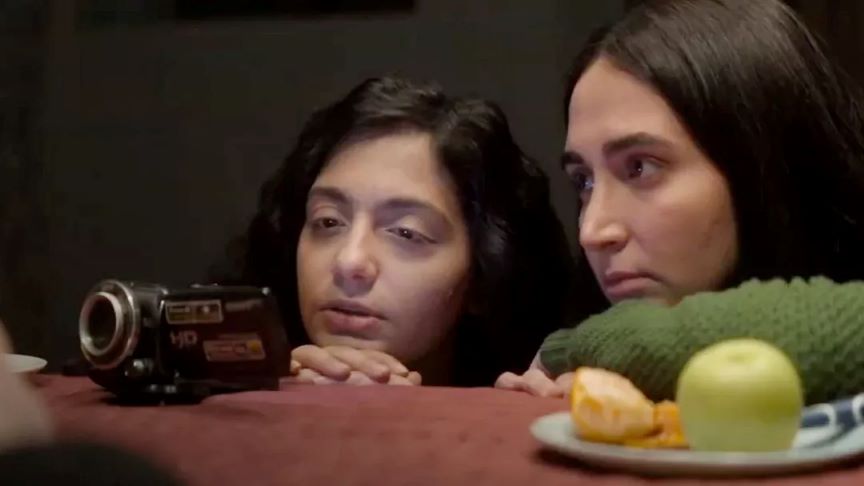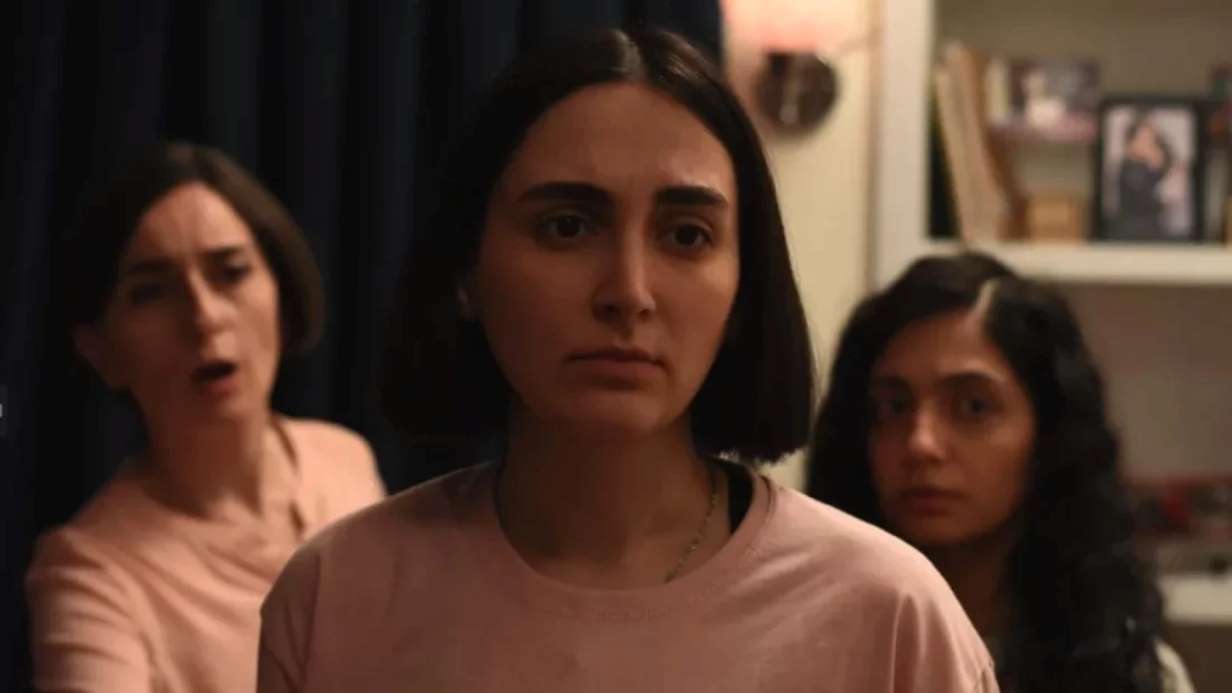The Seed of the Sacred Fig
15It’s easy to understand why making a film is such a privilege for many. Given what at times is a staggering amount of money to ensure your vision makes its way onto the big screen. And then all the kudos that comes from it, particularly if it’s a success.
For many directors, the biggest challenge may well be having a difficult actor to work with, or just that craft services sucks.
But imagine then if just making a film could see you spend years in prison. Well that’s just the predicament that director Mohammad Rasoulof faces with the release of his latest film.

It's a podcast about political oppresion, let your hair down and play with it a little.
Living in Tehran with his wife Najmeh (Soheila Golestani), and two daughters Sana (Setareh Maleki) and Rezvan (Mahsa Rostami) is Iman (Missagh Zareh). He has just got some good news in that he’s getting a promotion at work; he is advancing into the role of an investigating judge, which is a huge honour, for both himself and his family.
And although it’s a time for celebration, the job comes with huge responsibilities, which affect them all; such as his daughters are no longer allowed to be on social media, as they can’t draw attention to themselves, as it could make all of them a target, thanks to Iman’s prestigious position.
The mood politically is changing in the city, especially amongst the young, who are being treated despicably. And it’s not long before the family is torn in two by conflict, which could result in its complete disintegration.

Hey missy, you think you can just fart and leave the room?!
There is often talk of brave filmmaking, often in terms of difficult subject matter, but it doesn’t get much braver than this. This is Iranian filmmaker Rasoulof’s tenth feature and may well be his most politically-charged yet.
At the heart of it is a slow-burning yet compelling family drama, as they all come to terms with the changes in their life the father’s new job brings. But as it does so, the political background soon forces itself into the foreground, giving the family both edge and new context.
Part of the way he manages that is by including actual footage shot by students on their phones of the 2022-2023 Iranian protests. Much of the footage is disturbing and graphic, which supports his family drama even more.
Rasoulof is familiar with rattling the political regime, that has seen him arrested a number of times, as well has have his passport taken away from him. But the release of this feature, which he had to shoot much of in secret, has seen him sentenced in his homeland to eight years in prison, a whipping, and a fine on top of that for good measure. Thankfully he managed to escape his country, fleeing to Germany, before he could be arrested. That’s dedication to the cause, right there.
His back story only elevates his film further, which despite its running time of being ten minutes short of three hours, is totally gripping throughout.
It’s certainly a film with a defined journey; starting with a fairly standard family drama, that slowly but surely mutates into something far darker. It may well leave you with a few unanswered questions, but there’s no denying the raw power that the film ultimately delivers.
This then is a film that will not only make you appreciate the director’s impressive creative vision, but also admire his conviction for making his art under such staggeringly difficult conditions.
